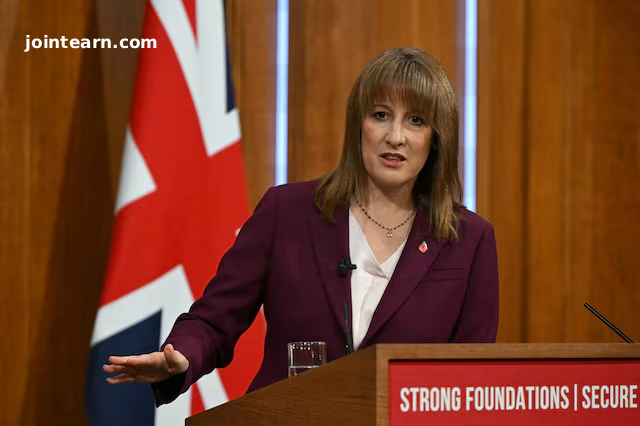
LONDON – Leading investors managing over $5 trillion in assets are urging British Chancellor of the Exchequer Rachel Reeves to significantly increase the UK’s fiscal buffer to better protect the economy against potential shocks. With her November 26 budget approaching, investors are calling for the fiscal headroom to be raised from its historically low level to around £20 billion ($27 billion).
The recommendations come from major asset managers including Amundi, AXA Investment Managers, Allianz Global Investors, and Franklin Templeton, who argue that increasing the buffer is critical to maintaining market credibility and fiscal flexibility.
Investors Recommend Income Tax Hikes
To reach the target fiscal headroom, three of these investment firms suggest raising income tax rates for the first time since the 1970s. While Reeves has not ruled out a tax hike, she faces political risks in breaking her election pledge to maintain current major tax rates.
Investors warn that failing to create sufficient fiscal room could force further tax increases next year, potentially undermining confidence in UK bonds. This comes even after borrowing costs fell in October, posting their largest monthly decline in nearly two years as inflationary pressures eased.
Fiscal Headroom and Budget Rules
Reeves’ fiscal strategy includes two key rules:
- Non-investment spending must be fully matched by tax revenue by 2029–30.
- Public sector net financial liabilities must fall as a share of GDP.
To comply with these rules, economists estimate that the government needs to find £20–30 billion in savings. However, the 2024 fiscal headroom of £9.9 billion, after raising £40 billion in taxes, has been largely eroded due to higher borrowing costs, a reversal of welfare cuts, and expected productivity forecast downgrades.
Potential Policy Options
Income tax hikes are considered the most straightforward and credible method to boost fiscal space. For example:
- A 1% increase in the main income tax band could raise £8 billion annually.
- Increases to the higher and top tax rates would yield only £2.23 billion combined, insufficient to fill the fiscal gap.
Smaller “salami-slicing” measures are limited, and attempting multiple minor adjustments could signal to markets that further fiscal tightening is constrained, reducing the government’s ability to respond to economic shocks.
Avoiding Inflationary Pressure
Investors stress that any fiscal measures must avoid stoking inflation, which currently sits at 3.8%, the highest among major advanced economies. Previous budget measures, including higher minimum wages and employer social security charges, may have added 0.6–1.0 percentage points to inflation.
A value-added tax (VAT) hike is unlikely due to its inflationary impact, and further increases in minimum wages warrant caution. Investors hope that measured tax policy combined with restraint on inflationary measures will allow the Bank of England (BoE) to consider rate cuts, lowering borrowing costs and supporting growth.
Spending Cuts Remain Uncertain
Reeves has indicated that she continues to seek savings on top of £14 billion in efficiency gains announced earlier. Welfare reform remains on the agenda but is politically sensitive. Investors are split on the likelihood of meaningful spending cuts but suggest that targeted reductions—particularly in welfare—could reduce borrowing costs and support fiscal credibility.
Amundi’s Gregoire Pesques recommends over £5 billion in cuts to ensure credibility. Franklin Templeton warns that without effective spending reductions, the government may need to implement further tax hikes in the coming year.
Market Implications
- UK bonds: Adequate fiscal headroom strengthens market confidence and may reduce yields.
- Fiscal flexibility: Increased buffer provides room for unforeseen economic shocks.
- Inflation management: Avoiding measures that increase inflation is critical for BoE monetary policy.
As the Labour government prepares its next budget, investors are closely watching whether Reeves can balance tax hikes, spending cuts, and inflation control to maintain credibility in the eyes of financial markets.


Leave a Reply